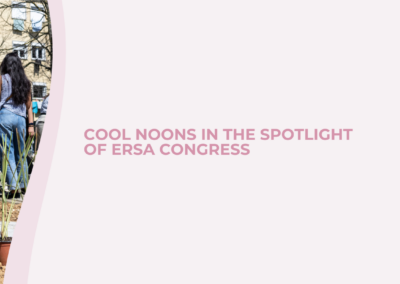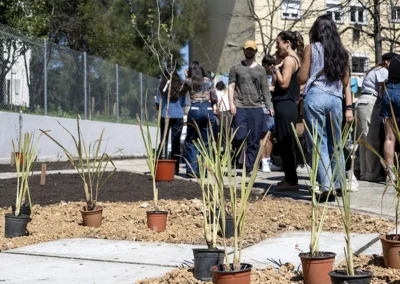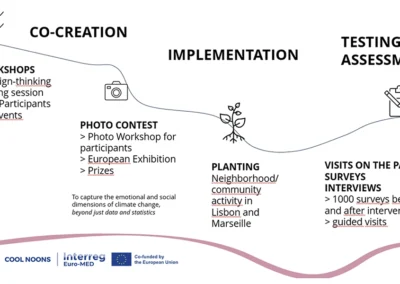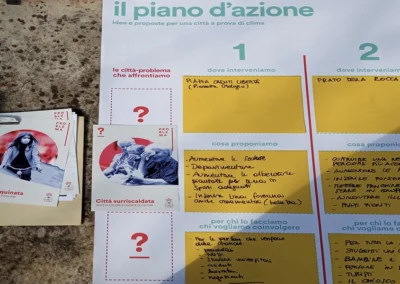Cool Noons project was invited to present the results of the “participatory approach to face urban heat”, which was the focus of the session named “Viable Solutions Towards Sustainable Tourism in Mediterranean Tourism Destinations”. The project was presented by project manager Lu’u Dauxais (Avitem, lead partner of Cool Noons), together with Courtney Schilling and Ana Caldeira (University of Coimbra).
Heat in the Mediterranean area
The alarming environmental context that world citizens are living everyday impacts the quality of life within the urban areas of the Mediterranean, where Cool Noons project is focusing on, urging the need to take action and face this challenge: 48.8°C in Syracuse, 41°C in Athens, 47°C in Lisbon were just a few of temperatures brought to the attention, and by 2100, the worst-case scenario from the Intergovernmental Panel on Climate Change anticipates a general increase in temperatures across the Mediterranean, ranging from +4.5°C to +7°C. This will also result in more frequent and longer heatwaves.
Lu’u took the audience on a journey through history, identifying a switch in the way humans perceive Earth: from a living and sacred organism to a machine to be exploited. The climate change crisis is a cultural shift—a loss of a deep, respectful relationship with nature and equal humanity. The extent and gravity of climate change might make feel powerless, but any project can make a difference.
Cool Noons project, through humble but active actions, promotes to « act locally, think globally », such as the Caribbean poet and philosopher Edouard Glissant invokes.
Act locally, think globally
What if cities could adapt to rising temperatures by rethinking the way we experience urban spaces during the hottest hours of the day?
Five pilot cities and 9 project partners are creating cool resting and green areas, identifying and promoting of cool refuges such as Estufa Fria in Lisbon, the Maritime Museum of Dubrovnik, but also libraries and universities. Cool Noons is mapping “cool paths”, where tourists and residents alike could find shade and for some cities, easy access to drinkable water.






